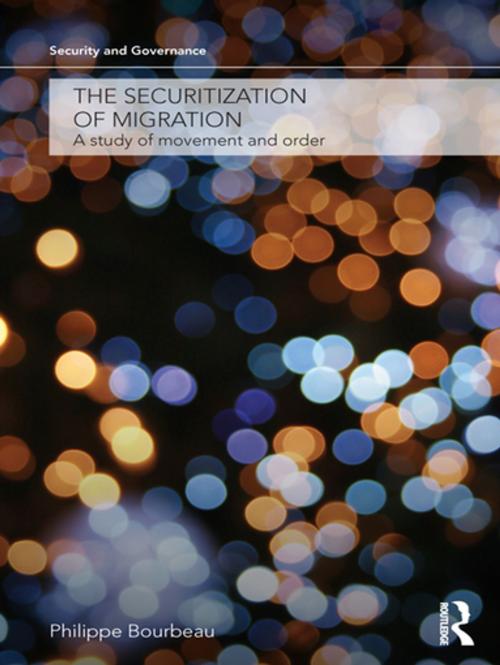The Securitization of Migration
A Study of Movement and Order
Nonfiction, Social & Cultural Studies, Political Science, Politics, History & Theory| Author: | Philippe Bourbeau | ISBN: | 9781136814662 |
| Publisher: | Taylor and Francis | Publication: | March 23, 2011 |
| Imprint: | Routledge | Language: | English |
| Author: | Philippe Bourbeau |
| ISBN: | 9781136814662 |
| Publisher: | Taylor and Francis |
| Publication: | March 23, 2011 |
| Imprint: | Routledge |
| Language: | English |
The international movement of people is provoking worldwide anxiety and apprehension. Nation-states around the globe, especially Western ones, are cracking down on migration for security reasons. International migration has become a key security issue and is perceived, by some, as an existential security threat.
The Securitization of Migration is about the movement of people and the system of order underpinning the movement. In undertaking a comparative study of Canada and France, the study analyzes the process of securitizing migration. It explores the process of discursively and institutionally integrating international migration into security frameworks that emphasize policing and defence. Drawing upon social theory, migration studies, and Securitization Theory, Philippe Bourbeau seeks to understand the concepts of power underlying security frameworks and how these affect the treatment of migrants and immigrants. This book is one of the first to systematically and comparatively examine the role of political agents, media agents, and contextual factors in the process of securitizing migration.
The book will be of interest to students and scholars concerned with comparative and theoretical approaches to security and migration studies.
The international movement of people is provoking worldwide anxiety and apprehension. Nation-states around the globe, especially Western ones, are cracking down on migration for security reasons. International migration has become a key security issue and is perceived, by some, as an existential security threat.
The Securitization of Migration is about the movement of people and the system of order underpinning the movement. In undertaking a comparative study of Canada and France, the study analyzes the process of securitizing migration. It explores the process of discursively and institutionally integrating international migration into security frameworks that emphasize policing and defence. Drawing upon social theory, migration studies, and Securitization Theory, Philippe Bourbeau seeks to understand the concepts of power underlying security frameworks and how these affect the treatment of migrants and immigrants. This book is one of the first to systematically and comparatively examine the role of political agents, media agents, and contextual factors in the process of securitizing migration.
The book will be of interest to students and scholars concerned with comparative and theoretical approaches to security and migration studies.















